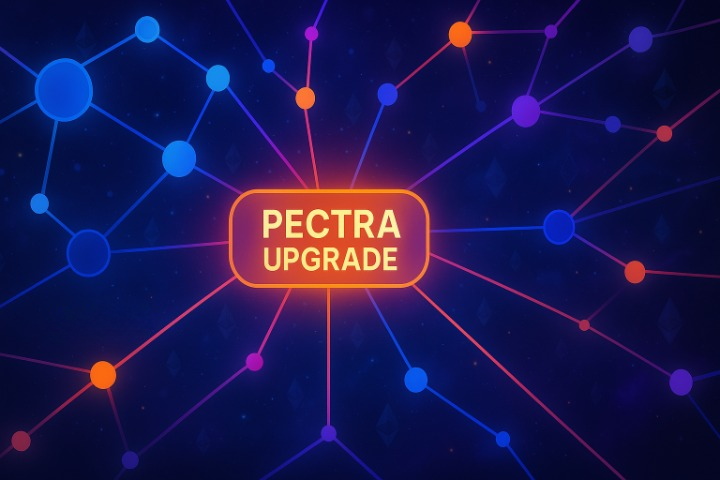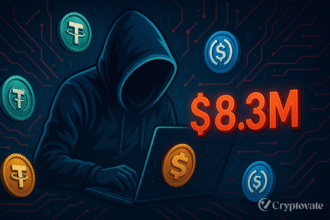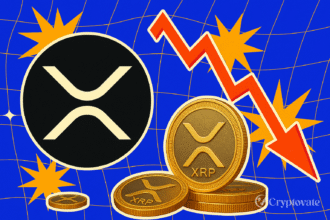Ethereum, the world’s leading smart contract blockchain, is gearing up for its highly anticipated Pectra upgrade. However, as with any major technological leap, concerns about security have surfaced within the crypto community. Vitalik Buterin, Ethereum’s co-founder and one of the most influential voices in blockchain, recently addressed these worries head-on. In this article, we’ll dive into what the Pectra upgrade entails, explore the security concerns, and unpack Buterin’s response to ensure Ethereum remains a trusted platform for decentralized applications. Let’s break it down in a way that’s clear, engaging, and easy to follow.
What Is the Pectra Upgrade?
Before we get into the security discussion, let’s set the stage by understanding the Pectra upgrade. Scheduled to roll out on the Ethereum mainnet, this upgrade is a significant step in Ethereum’s ongoing evolution. It expands on earlier upgrades such as the Merge and Shanghai, focusing on improving scalability, performance, and user-friendliness. A key component of Pectra is Ethereum Improvement Proposal (EIP) 7702, co-authored by Vitalik Buterin alongside Ansgar Dietrich, Matt Garnett, and Sam Wilson.
EIP-7702 introduces delegated state to JSON-RPC, a feature designed to improve compatibility with smart contract functionalities. This upgrade promises to make Ethereum more user-friendly, particularly for developers and wallet providers, by streamlining transaction processes and boosting Layer-2 efficiency. Additionally, Pectra aims to increase validator rewards and enhance account abstraction, paving the way for broader adoption of decentralized finance (DeFi) and other blockchain applications.

Why Are There Security Concerns?
With great innovation comes great responsibility—and scrutiny. The Pectra upgrade, particularly EIP-7702, has sparked discussions about potential vulnerabilities. Some community members worry that the new delegated state feature could introduce risks, such as malicious contracts exploiting user wallets. Others have raised questions about the robustness of smart contracts under the upgraded system, fearing that untested code could lead to hacks or financial losses.
These concerns aren’t unfounded. Ethereum has faced security challenges in the past, from the infamous DAO hack to more recent exploits in DeFi protocols. As the blockchain handles billions of dollars in transactions, any misstep could have far-reaching consequences. The crypto community, known for its vigilance, has been vocal about ensuring Pectra doesn’t compromise Ethereum’s hard-earned trust.
Vitalik Buterin’s Response: A Call for Caution and Trust
Vitalik Buterin, never one to shy away from tough questions, addressed these concerns in a thoughtful and proactive manner. In a recent post on Warpcast, he advised users to stick to contracts audited and approved by trusted wallet teams. This advice highlights the need for careful scrutiny in a decentralized environment, where users hold substantial responsibility for their own safety.
Buterin’s message was clear: while the Pectra upgrade introduces powerful new features, safety remains paramount. By urging users to rely on vetted contracts, he aims to mitigate risks associated with untested or malicious code. His guidance reflects Ethereum’s broader philosophy of balancing innovation with stability, ensuring that users can embrace new functionalities without falling prey to vulnerabilities.
How Ethereum Is Strengthening Security for Pectra
In addition to Buterin’s guidance, the Ethereum Foundation is implementing practical measures to tackle security issues. The Pectra upgrade underwent rigorous testing on the Holesky testnet, where developers identified and resolved potential issues. Additionally, the Foundation launched a $2 million bug bounty program, inviting developers worldwide to stress-test the system before its mainnet launch. This initiative, running until March 24, 2025, demonstrates Ethereum’s commitment to transparency and robustness.
The external security audit of Pectra’s system contracts is another critical measure. Conducted by independent experts, this audit ensures that the upgrade’s code meets the highest standards of safety and functionality. By prioritizing these efforts, Ethereum aims to preempt vulnerabilities and build confidence among users and developers alike.
Why Buterin’s Leadership Matters
Vitalik Buterin’s contribution to resolving Pectra’s security issues extends beyond his technical knowledge. As a thought leader in the crypto space, his words carry weight, reassuring the community during periods of uncertainty. His ability to communicate complex ideas in a relatable way fosters trust, making Ethereum’s vision accessible to both seasoned developers and newcomers.
Buterin’s involvement in EIP-7702 also highlights his hands-on approach. By co-authoring the proposal, he’s directly shaping Ethereum’s future, ensuring that upgrades align with the platform’s core principles of decentralization and security. His leadership sets a precedent for other blockchain projects, showing that innovation and safety can coexist.
Also Read: Vitalik Buterin Emphasizes Mitigating Crypto Losses Amid Ethereum’s Pectra Security Audit Release
What Does This Mean for Ethereum Users?
For everyday Ethereum users, Buterin’s advice translates into practical steps. First, always verify the contracts you interact with, ensuring they’ve been audited by reputable teams. Second, stay informed about wallet updates, as trusted providers like MetaMask or Coinbase Wallet will likely integrate Pectra’s features securely. Finally, consider participating in Ethereum’s community discussions on platforms like Reddit or Discord, where you can learn from developers and enthusiasts about best practices.
For developers, Pectra opens new possibilities but also demands vigilance. The introduction of EIP-7702 means you’ll need to update your tools and test your applications thoroughly. Leveraging Ethereum’s bug bounty program or collaborating with auditors can help ensure your projects are secure and compatible with the upgrade.
The Bigger Picture: Ethereum’s Roadmap
The Pectra upgrade is just one piece of Ethereum’s ambitious roadmap. Looking ahead, Buterin has outlined plans to enhance privacy, scalability, and finality. For instance, he recently unveiled a short-term roadmap to improve Ethereum’s privacy through features like Privacy Pools. These efforts, combined with Pectra’s advancements, signal Ethereum’s determination to remain the backbone of Web3.
Security concerns, while valid, are part of the growing pains of a transformative technology. By addressing them proactively, Ethereum reinforces its position as a leader in the blockchain space. Buterin’s guidance, paired with the Foundation’s rigorous processes, ensures that the platform evolves without compromising its core values.

Conclusion
Vitalik Buterin’s address of the security issues with Pectra serves as proof of Ethereum’s dedication to supporting its community. By advocating for caution, supporting rigorous testing, and leading by example, Buterin is steering Ethereum toward a future where innovation and safety go hand in hand. The Pectra upgrade, with its promise of enhanced functionality, is poised to strengthen Ethereum’s ecosystem—provided users and developers heed the call to prioritize security.
As Ethereum continues to evolve, staying informed and vigilant will be key. Whether you’re a user, developer, or enthusiast, now’s the time to engage with the platform’s progress and contribute to its success. With Buterin at the helm, Ethereum’s journey is one to watch—and one that’s shaping the future of decentralized technology.













